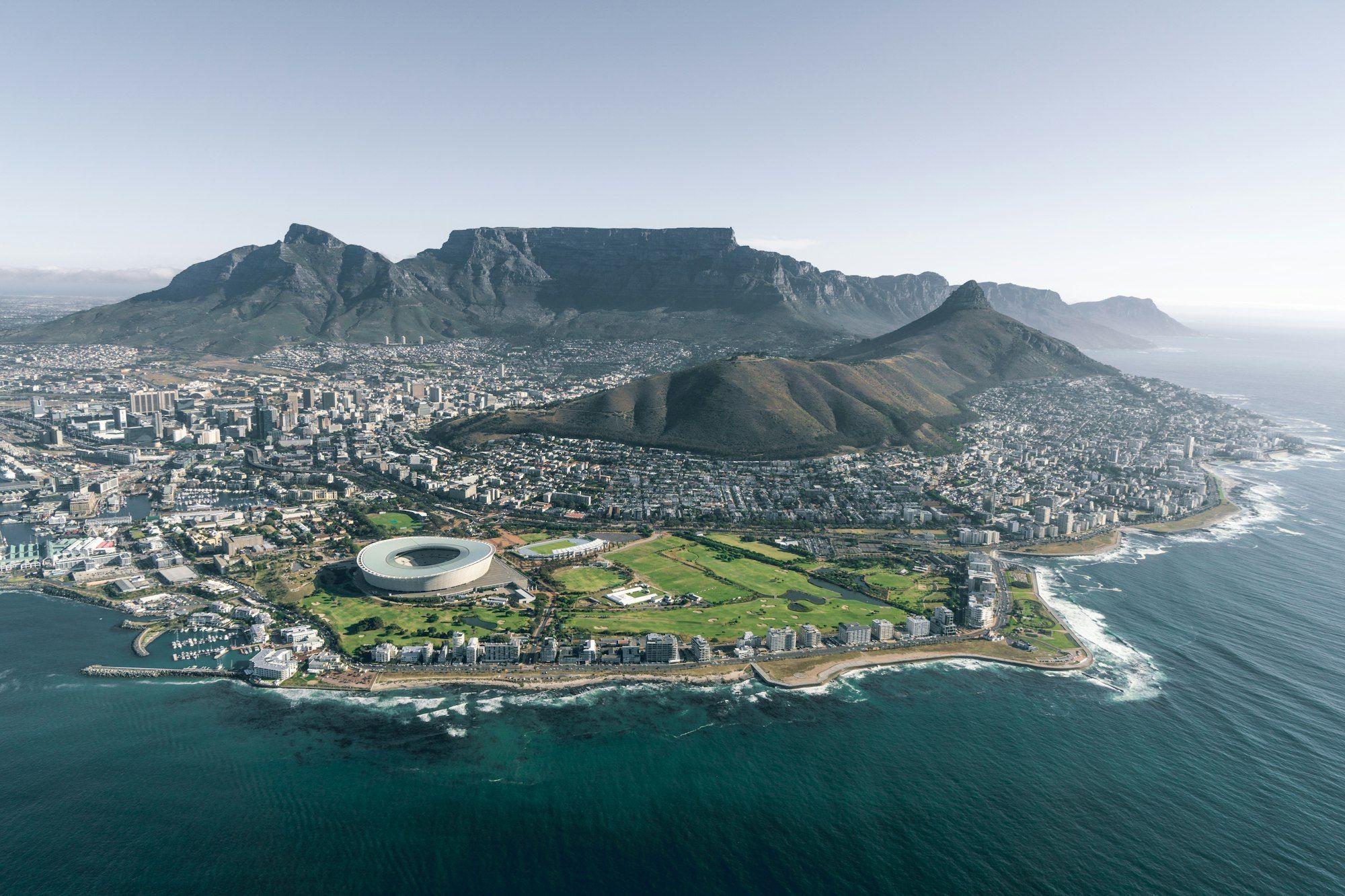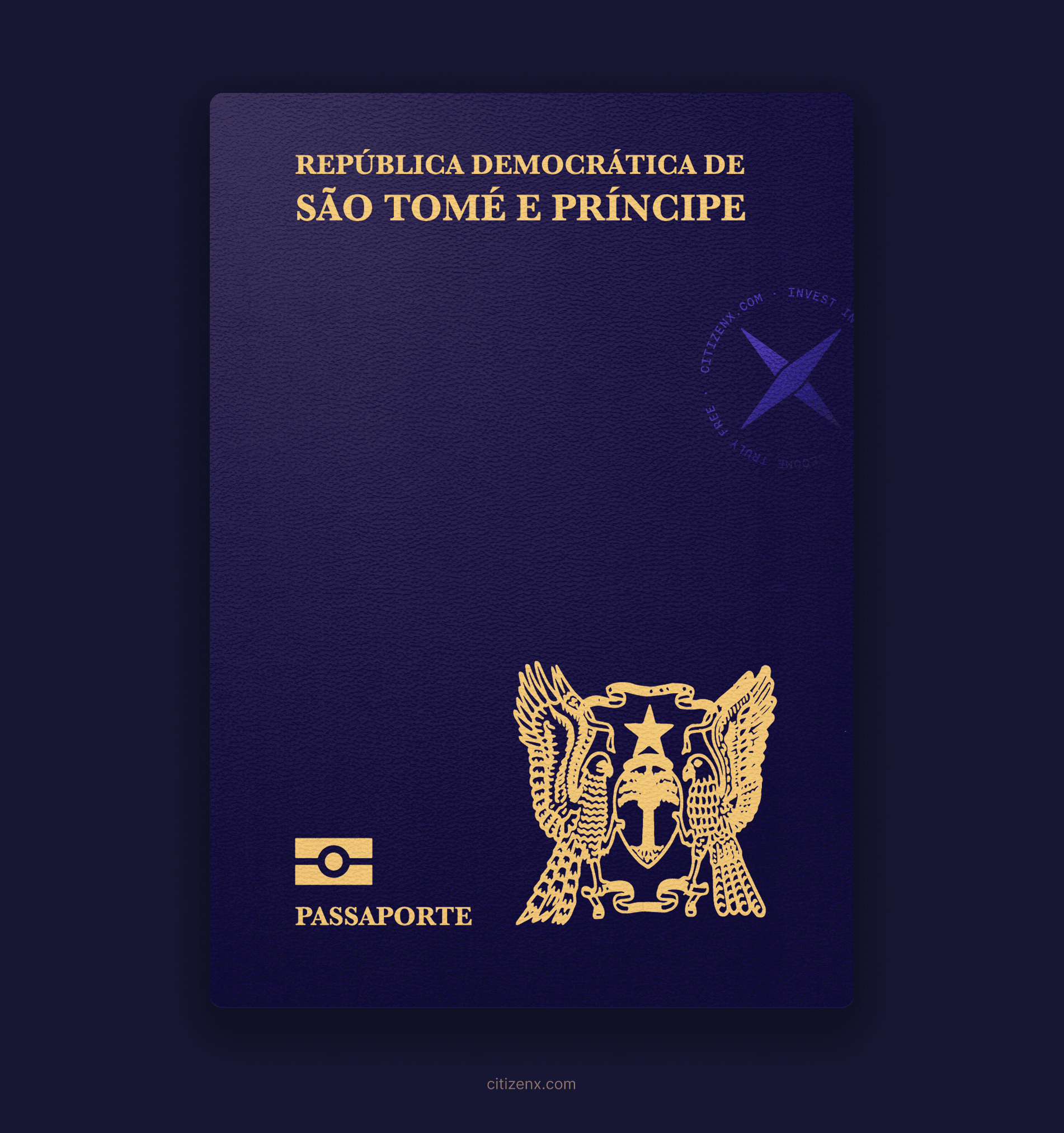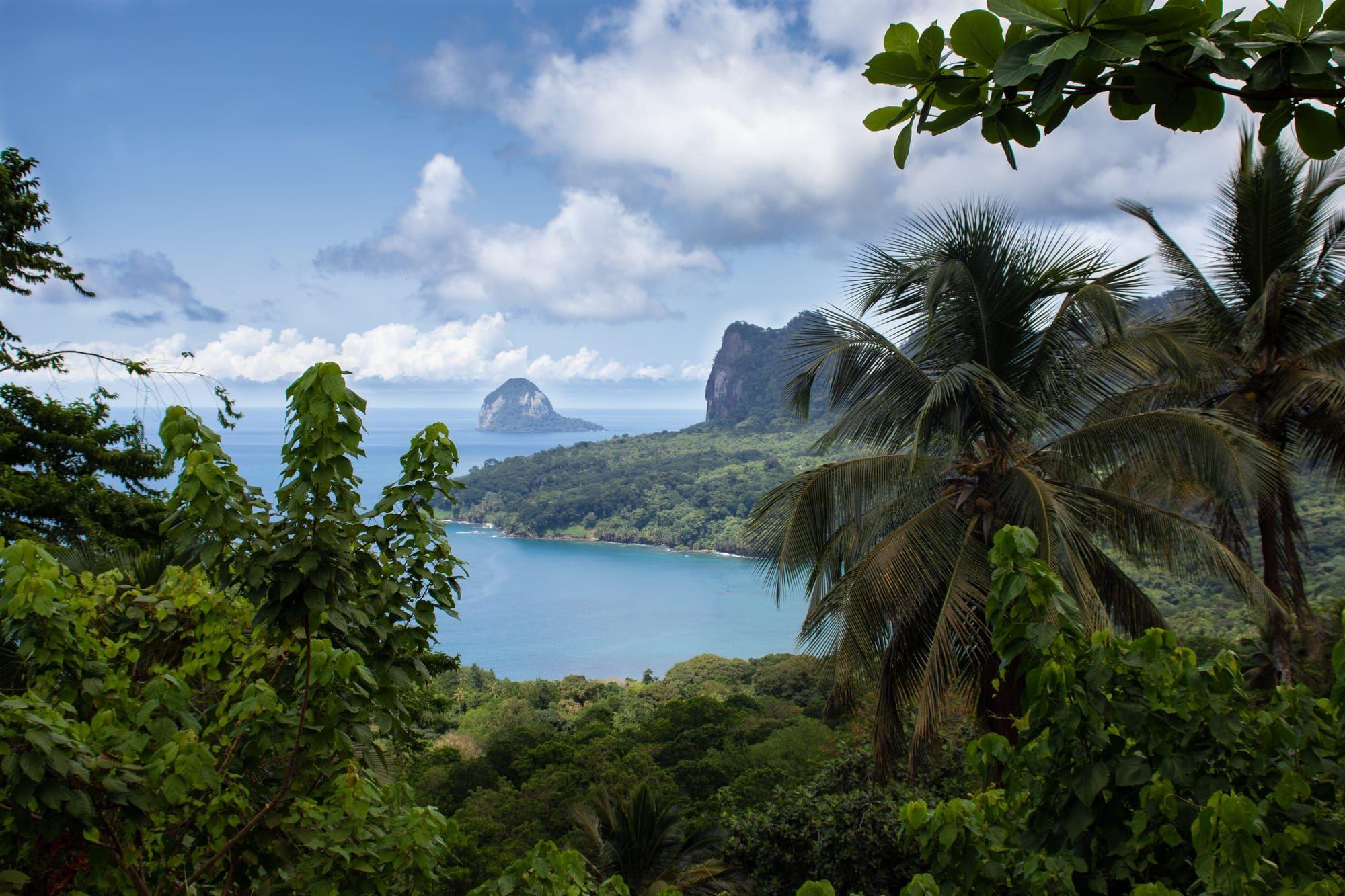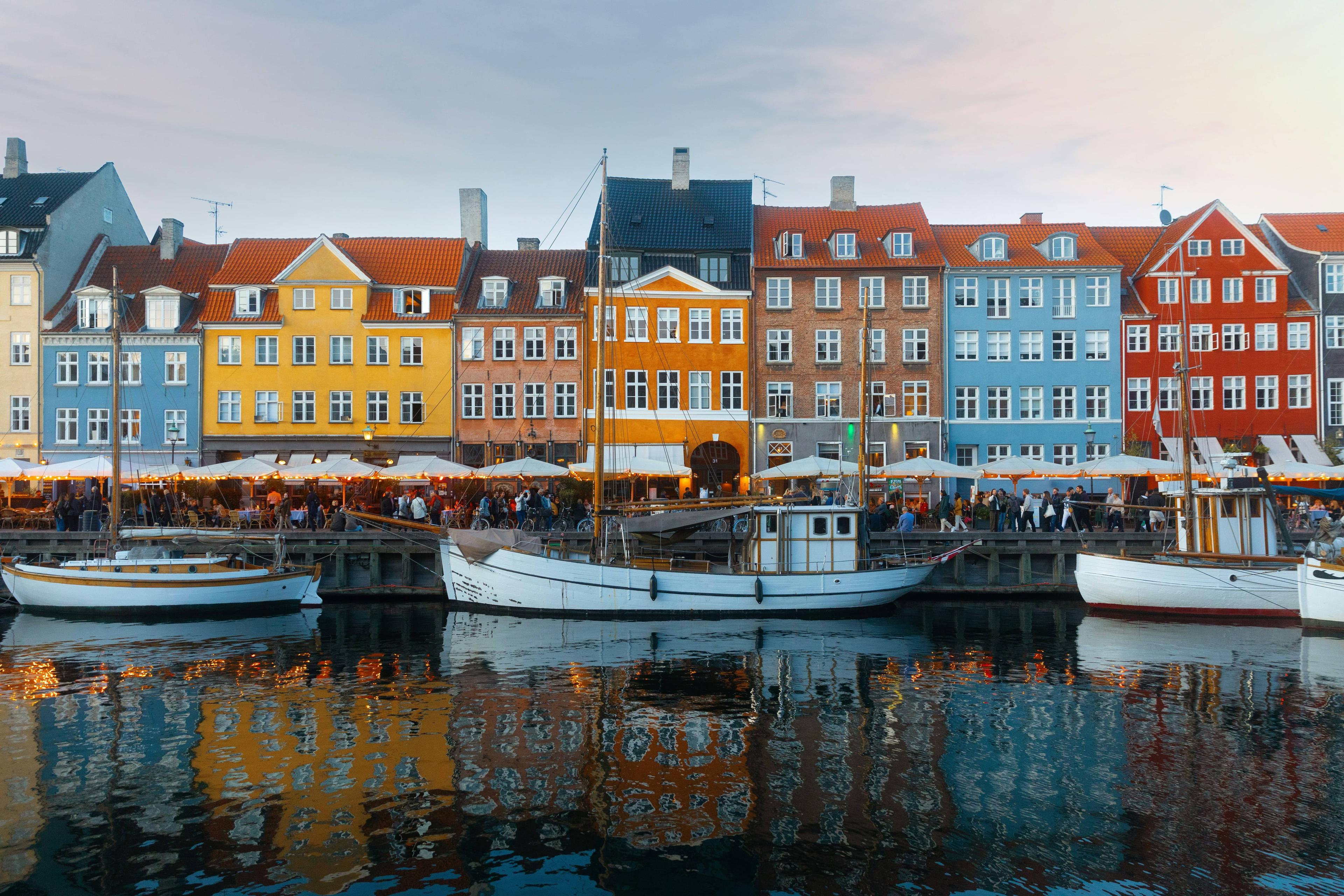Guide to African Citizenship by Investment Countries in 2025

Africa is emerging as a new hub for citizenship and residency programs, offering investors fresh opportunities and advantages.
Introduction: The Growing Appeal of African Investment Migration
The world of investment migration has been expanding beyond its traditional territories, and Africa has emerged as an exciting new frontier. Once dominated by Caribbean and European offerings, citizenship and residency by investment programs are now taking root across the African continent, opening doors for global investors seeking new opportunities, strategic advantages, and lifestyle benefits.
As someone who's spent years navigating this evolving landscape, I can tell you that African programs offer something uniquely valuable: a blend of emerging market potential, strategic geographic positioning, and often, a more accessible price point than their European counterparts.
Open post on XWhether you're an entrepreneur looking to expand into fast-growing African markets, a global citizen seeking portfolio diversification, or someone with ancestral connections to the continent, understanding these programs is increasingly important in today's interconnected world.
In this comprehensive guide, we'll explore both established and emerging citizenship and residency options across Africa, breaking down the investment requirements, benefits, timelines, and important considerations for each program. By the end, you'll have a clear picture of what's available and how these opportunities might align with your personal and financial goals.

UPDATE: São Tomé & Príncipe
São Tomé & Príncipe announced on August 5, 2025 a new citizenship by investment program.
CBI vs. RBI: Understanding the Fundamental Difference
Before diving into specific programs, let's clarify the important distinction between Citizenship by Investment (CBI) and Residency by Investment (RBI) programs, as these terms are often confused or used interchangeably, leading to misunderstandings.
Citizenship by Investment (CBI) programs provide a direct route to full citizenship and a passport, typically without requiring extended prior residency in the country. Once approved, you become a naturalized citizen with nearly all the rights and privileges of someone born there, often within a matter of months rather than years.
Residency by Investment (RBI) programs (sometimes called "golden visas") grant you a residence permit – either temporary or permanent – allowing you to live in the country legally. While these may put you on a path to eventual citizenship, they don't confer citizenship outright; you'll still need to meet additional requirements like physical presence and integration criteria over several years.
This distinction matters tremendously when planning your global mobility strategy. If you need immediate citizenship benefits like passport-based travel privileges, you'll want a CBI program. If your priority is establishing a legal presence for business, lifestyle, or tax purposes – with the option of pursuing citizenship down the road – an RBI program might better suit your needs.
With that crucial difference clarified, let's explore the active citizenship programs in Africa.
Active Citizenship by Investment Programs in Africa
As of 2025, three countries in the MENA (Middle East and North Africa) region offer formalized citizenship by investment programs: Egypt, Jordan (while geographically in Asia, often included in MENA discussions), and Sierra Leone. Let's examine each one in detail.
Egypt's Citizenship by Investment Program
Egypt launched its CBI program in 2019, making it one of the first African nations to formalize such an initiative. The program was refined in 2023 to make it more competitive, with the government lowering several investment thresholds to attract more applicants.
Investment Options
Egypt offers four distinct pathways to citizenship:
- Direct Contribution Route: A one-time, non-refundable payment of USD $250,000 to the Egyptian state treasury. Think of this as the most straightforward option – a direct contribution to the country's development in exchange for citizenship.
- Real Estate Investment: Purchase property worth at least USD $300,000. Initially, this was limited to government-owned real estate, but a 2023 amendment opened this up to include private real estate as well, giving investors more flexibility. You'll need to hold the property for at least five years before selling.
- Business Investment: Invest USD $350,000 in a new or existing Egyptian business AND make an additional USD $100,000 non-refundable contribution to the public treasury. This two-part investment supports both private enterprise and public finances.
- Bank Deposit: Place USD $500,000 with the Central Bank of Egypt for three years. After this period, you can get your principal back (in Egyptian pounds at the official exchange rate), making this essentially an interest-free loan to the government.
What I particularly appreciate about Egypt's program is this variety of options, allowing you to choose the path that best aligns with your financial strategy and goals.
Timeline and Process
One of the most attractive aspects of Egypt's program is that it requires no prior residency – you don't need to live in Egypt before or after applying. Once your investment is made and approved, citizenship is granted relatively quickly.
The process typically takes around six months from application to approval, though you might receive temporary residency sooner if you're paying in installments (allowed for up to one year on some investment options). Your Egyptian passport is issued only after all funds are received.
Benefits and Considerations
An Egyptian passport grants visa-free or visa-on-arrival access to about 50 countries worldwide. While not as powerful as some European or Caribbean passports, it offers some unique regional advantages, including visa-on-arrival access to Nigeria (Africa's largest economy) and eligibility for the U.S. E-2 Investor Visa.
Egypt allows dual citizenship, so you won't need to renounce your original nationality – a crucial consideration for many investors. The investment requirements, while substantial, are significantly lower than many European options, making this an accessible entry point into the investment citizenship world.
The program is administered by a specialized Citizenship by Investment Unit, with robust background checks conducted by security agencies before approval. All funds must be transferred from abroad in foreign currency, ensuring a genuine capital inflow to the country.
Jordan's Citizenship by Investment Program
Jordan introduced its citizenship-by-investment initiative in 2018 to stimulate foreign direct investment. The program's criteria were subsequently adjusted in 2019 to make it more attractive.
Investment Options
Jordan's CBI program offers several investment scenarios:
- Central Bank Deposit & Bonds: Deposit USD $1,000,000 in the Central Bank of Jordan (zero interest) for 3 years AND purchase USD $1,000,000 in Jordanian government bonds to be held for 6 years. This dual requirement effectively ties up $2 million in Jordan for several years.
- Equity Investment: Invest USD $1.5 million in shares of Jordanian companies and maintain the investment for at least 3 years. The shares will have a lien placed on them to prevent early sale.
- Project Investment: Launch or invest in a new project in Jordan with different thresholds depending on location – USD $1,000,000 for projects in Amman (the capital) or USD $750,000 for projects in other regions. Projects in Amman must create at least 20 jobs for Jordanians, while those outside Amman need to create at least 10 jobs.
An interesting feature of Jordan's program is its annual cap – only 500 applications are accepted each year, making this a more exclusive option.
Timeline and Processing
Jordan's CBI program requires no prior residency, and like Egypt, you don't need to live in Jordan after obtaining citizenship. The processing time is typically around 3-6 months from application to approval.
The program includes a security clearance stage that must be passed before the investment is finalized, which can affect the timeline. Family members (spouse, dependent children under 18, and dependent parents) can be included in the citizenship application.
Benefits and Considerations
A Jordanian passport allows visa-free or visa-on-arrival access to over 50 countries, including regional hubs like Hong Kong and Turkey. Jordan permits dual citizenship, so you can retain your original nationality.
The investment requirements are higher than Egypt's, reflecting Jordan's positioning as a stable country in a sometimes turbulent region. This stability is part of what you're investing in – a secure foothold in the Middle East with strong international relations.
If an investor fails to sustain the investment for the required duration, citizenship status could potentially be re-evaluated, so it's important to view this as a long-term commitment.
Sierra Leone's Fast-Track Citizenship Program
Sierra Leone is the newest entrant to the CBI space, launching its program in January 2025. Called the "GO-FOR-GOLD" program, it initially offered permanent residency in late 2024 before adding the citizenship option.
Investment Options
Sierra Leone offers two main routes to citizenship:
- Standard Fast-Track Naturalization: Available to any foreign investor for a contribution of USD $140,000 per main applicant. This covers all program fees, due diligence costs, and legal processing.
- Heritage Naturalization: A special discounted route for applicants of African descent in the diaspora. If you can prove African lineage via DNA testing, the required contribution is reduced to USD $100,000.
Both options allow family members to be added for an extra $10,000 per dependent (spouse, child under 18, or dependent parent).
What makes Sierra Leone's program stand out is its explicit recognition of the African diaspora through the Heritage route. This acknowledges the historical dispersal of African peoples and offers a path for reconnection – a powerful symbolic as well as practical benefit.
Timeline and Process
Sierra Leone's CBI program requires no prior residency in the country. The processing timelines are among the fastest in the world: citizenship in 90 days for standard investors and just 60 days for qualifying diaspora investors.
These timelines cover the period from application submission to approval and issuance of the naturalization certificate and passport. Applicants don't have to live in Sierra Leone during or after this process.
Benefits and Considerations
A Sierra Leone passport gives visa-free or visa-on-arrival access to about 68 countries as of 2025. Perhaps more importantly, Sierra Leone citizens can travel freely and even reside in 15 West African nations (ECOWAS member states) without separate visas – opening up a significant portion of the continent for business and travel.
Sierra Leone allows dual citizenship, so you can keep your original nationality. The program does not require any ongoing obligation like residence or additional investment beyond the initial contribution.
The program is new, which means processes are still being refined. However, the government is collaborating with experienced international advisors to ensure smooth implementation.
Notable Residency by Investment Programs in Africa
If you're not ready for full citizenship or prefer a staged approach, several African nations offer attractive residency by investment programs. These can be excellent options for establishing a presence in Africa with the possibility of pursuing citizenship down the road.
Mauritius – A Premier Residence Destination
Mauritius has one of Africa's most established and respected RBI programs, offering a 10-year renewable residence permit or even permanent residence for qualifying investments.
Investment Options
Mauritius provides multiple investment categories:
- Real Estate Investment: Purchase approved real estate worth at least USD $375,000 in designated schemes such as the Integrated Resort Scheme, Property Development Scheme, Smart City Scheme, or even a standalone apartment in a building of at least three floors. This investment qualifies for a Permanent Residence Permit (PRP).
- Business Investment: Invest at least USD $50,000 into a new or existing business in Mauritius for an Occupation Permit (Investor), valid for 10 years and renewable.
- Retirement Permit: For individuals aged 50 or above, showing a monthly income/pension of USD $1,500 qualifies you for a 10-year renewable residence permit.
I've personally seen Mauritius become increasingly popular among investors seeking both lifestyle and business benefits, thanks to its stable political environment and strategic location.
Path to Citizenship
Mauritius requires 5 years of continuous residency with actual physical presence before one can apply for naturalization as a citizen. So while the RBI itself doesn't guarantee citizenship, it makes you eligible over time.
Benefits
A Mauritius residence permit allows you and your family to live, work, and retire in Mauritius indefinitely. You'll enjoy a stable, low-tax environment (Mauritius has a flat 15% tax and many tax treaties), a high standard of living, good healthcare and education, and a tropical climate.
Mauritius ranks high on ease-of-doing-business indices and is a member of regional blocs like SADC and COMESA, offering strategic business advantages.
Namibia – Africa's Newest Golden Visa
Namibia launched its Residency by Investment initiative in 2023 in partnership with private developers, granting a renewable 5-year work visa to investors who purchase property in designated developments.
Investment Requirement
To qualify, you must purchase real estate worth at least USD $316,000 in the President's Links Estate project in Walvis Bay, Namibia. For investors aged 60 and above, there are "retirement units" starting at $300,000 that also qualify.
Residence Status and Path to Citizenship
The investment grants you a 5-year residence permit structured as a work permit, allowing you to live, work, manage a business, or study in Namibia. This permit is renewable every five years, provided you still own the property.
After some years on these 5-year permits, you could potentially apply for permanent residence and eventually citizenship, though the program itself doesn't directly grant these statuses.
Benefits
Namibia offers a safe and politically stable environment with a high quality of life by African standards. It has beautiful landscapes, making it attractive to retirees or second-home seekers.
Economically, residents enjoy a territorial tax system (foreign income is not taxed in Namibia). The country is a member of the Southern African Development Community (SADC) and Commonwealth, which could potentially allow some regional business travel perks.
South Africa – Financial Independence Permit
South Africa doesn't have a branded "golden visa" program, but its immigration law provides two key avenues for high-net-worth individuals to obtain residency rights.
Investment Options
- Financially Independent Permit: Demonstrate a net worth of at least ZAR 12 million (approximately USD $640,000-$820,000) and pay an application fee of ZAR 120,000 to the government. This grants direct permanent residency without requiring actual investment in South Africa.
- Business Investment Visa: Invest at least ZAR 5 million (about $270,000) into a new or existing South African business, typically with a requirement that 60% of staff be South African citizens or permanent residents. This grants a 3-year temporary residence permit, renewable, with the possibility of permanent residence after running the business for around 5 years.
Residence Status and Path to Citizenship
The Financially Independent Permit grants immediate permanent residency with processing taking around 8 months. Business investors get a 3-year visa initially.
Citizenship can be applied for after 5 years of actual residence on permanent resident status, with dual citizenship allowed.
Benefits
South Africa offers a dynamic economy, relatively good infrastructure, and a favorable exchange rate for foreigners. A permanent resident can work, study, or run a business without restriction.
You don't have to spend a minimum number of days in-country to maintain PR status – as long as you don't stay out of South Africa for 3+ years at a time. This makes the Financial Independent PR very flexible for people who want the option to live in South Africa but may not do so full-time.
Seychelles – Immigrant Investor Program
Seychelles offers an Immigrant Investor Program that grants permanent residence to foreigners who make substantial business investments, with the possibility of citizenship after a significant residency period.
Investment Requirement
Invest at least USD $1 million in a Seychellois business or enterprise in an area approved by the government. There's also a requirement to reside in Seychelles for at least one year as a resident before PR is granted.
Path to Citizenship
After 11 years of continuous residency, you can apply for citizenship through naturalization. The $1 million investment doesn't shorten this timeline; it simply makes it possible by giving you the right to reside long-term.
Benefits
Seychelles permanent residents enjoy the right to live and work in Seychelles without needing additional permits. Seychelles is a tax-friendly jurisdiction and offers beautiful island living.
The Seychelles passport (if eventually obtained) is quite strong, ranked 2nd in Africa, with visa-free access to 162 countries including the EU and UK – making it valuable for those willing to commit to the long-term residency requirement.
Cabo Verde (Cape Verde) – Discretionary Provisions
Cabo Verde doesn't have a formal CBI program with published investment tiers, but its laws allow the government to naturalize foreign investors without the usual residency period in special cases.
Investment Routes
For permanent residence, an investment exceeding 180 million Cape Verdean escudos (approximately USD $2 million) confers the right to a permanent residence permit.
For citizenship, there's no fixed amount in law; a "substantial contribution" to the country (often cited around €200,000 in real estate or businesses, especially those creating local jobs) can be considered for direct naturalization on a case-by-case basis.
This discretionary approach means that each case is negotiated individually, creating both flexibility and uncertainty.
Comparative Analysis: Finding the Right Fit
Now that we've explored the options, let's compare them on key factors to help you identify which might best suit your needs.
Investment Thresholds
The investment requirements across these programs vary significantly:
- Lowest CBI option: Sierra Leone's heritage route at $100,000 (for those with African ancestry)
- Lowest standard CBI: Sierra Leone's standard route at $140,000
- Mid-range CBI options: Egypt's donation route at $250,000 and real estate option at $300,000
- Highest CBI thresholds: Jordan's options ranging from $750,000 to $2 million
For residency programs:
- Most affordable RBI: Mauritius business investment at $50,000
- Mid-range RBI options: Namibia and Mauritius real estate at around $316,000 and $375,000 respectively
- Premium RBI options: Seychelles at $1 million and Cabo Verde at approximately $2 million
This price range allows for significant flexibility depending on your budget and objectives.
Timeline to Citizenship
The speed of acquisition varies dramatically:
- Fastest direct citizenship: Sierra Leone (60-90 days)
- Medium-term citizenship: Egypt and Jordan (3-6 months)
- Long-term path through residency: 5 years (Mauritius, South Africa), 10+ years (Namibia, Seychelles)
If time is of the essence, the direct CBI programs clearly offer the advantage. If you're planning for the long term and value the integration experience, the RBI routes might be more appropriate.
Passport Mobility
The travel value of these citizenships varies:
- Strongest potential passport: Seychelles (visa-free access to 162 countries) - but requires 11 years of residency
- Moderate mobility: Sierra Leone (68 countries plus ECOWAS regional mobility)
- Limited global mobility: Egypt and Jordan (around 50 countries each, but with some unique regional benefits)
Remember that passport strength is just one factor to consider. Regional access and specific country relationships can sometimes be more valuable depending on your travel patterns and business needs.
Residency Requirements
Most of these programs feature minimal physical presence requirements:
- No residency required: Egypt, Jordan, and Sierra Leone citizenship programs
- Minimal presence: Mauritius (5 days per year to maintain PR)
- Substantial presence required: Seychelles (11 years for citizenship), South Africa (5 years for citizenship)
This flexibility is particularly valuable for global citizens who need to balance commitments across multiple countries.
Due Diligence: What to Expect
All legitimate investment migration programs involve background checks. As an applicant, you'll typically need to provide:
- Police clearance certificates from countries where you've lived
- Source of funds documentation to demonstrate the legitimacy of your investment capital
- Medical examinations in some cases
- Personal history information and sometimes professional references
The due diligence process serves to protect both the country's interests and the program's reputation. Countries with strong programs like Egypt, Jordan, and Mauritius have established specific units to coordinate vetting with security agencies.
Be prepared for this process to take time and require detailed documentation. It's better to be thorough upfront than face delays or rejections later.
Practical Considerations: Making Your Decision
Beyond the hard facts of investment amounts and timelines, here are some practical considerations to guide your decision-making:
Strategic Location and Regional Access
Consider how each country's location serves your needs:
- North Africa gateway: Egypt provides access to both African and Middle Eastern markets
- Middle East hub: Jordan offers stability in a strategic region with strong international ties
- West African opportunity: Sierra Leone grants ECOWAS mobility across 15 West African states
- Southern Africa base: South Africa, Namibia, and Mauritius provide different entry points to the SADC region
- Indian Ocean lifestyle: Mauritius and Seychelles offer island living with different investment thresholds
Tax Implications
Tax considerations vary significantly:
- Territorial tax systems: Mauritius and Namibia only tax income earned within their borders
- Tax treaties: Mauritius has an extensive network of double taxation agreements
- Tax residency: Remember that citizenship doesn't automatically define tax residency; your physical presence patterns matter more
Always consult with a tax professional who specializes in international taxation before making investment decisions based on tax considerations.
Quality of Life
If you're planning to spend significant time in your new country, quality of life matters tremendously:
- Island paradises: Mauritius and Seychelles offer excellent climate, beaches, and lifestyle
- Urban sophistication: South Africa provides world-class cities with modern amenities at reasonable cost
- Natural beauty: Namibia features spectacular landscapes and wildlife
- Historical richness: Egypt and Jordan offer access to ancient civilizations and cultural heritage
Visit prospective countries before investing if possible. Online research can only tell you so much about how a place feels to you personally.
The Future of Investment Migration in Africa
The landscape of investment migration in Africa is still evolving, and we're likely to see more countries develop programs in the coming years. Regional economic integration through initiatives like the African Continental Free Trade Area may enhance the value of holding African citizenship or residency.
Countries with established tourism sectors, political stability, and investment-friendly policies might be next to implement formal programs. Nations like Ghana, Kenya, and Morocco already have investor-friendly residency provisions that could potentially evolve into more structured offerings.
As these programs mature, we'll likely see:
- More standardized processes and transparency
- Greater focus on sustainable development impact
- Enhanced due diligence protocols
- Potentially, regional coordination of investment migration policies
Making Your Move: Next Steps
If you're seriously considering citizenship or residency by investment in Africa, here are recommended next steps:
- Clarify your objectives: Be clear about why you want a second citizenship or residence, which will help narrow down suitable options.
- Consult professionals: Work with reputable immigration lawyers and investment advisors who specialize in African jurisdictions.
- Visit if possible: Experiencing a country firsthand can confirm whether it aligns with your expectations and lifestyle preferences.
- Verify program details: Always double-check current requirements directly with official government sources, as programs can change.
- Plan for the long term: Consider how your investment will be managed over time, especially for real estate or business options.
Conclusion: Africa's Investment Citizenship Landscape
Africa's investment migration programs offer a fascinating blend of opportunity, diversity, and value. Whether you're drawn to the immediate citizenship options of Egypt, Jordan, and Sierra Leone, or prefer the staged approach of residency programs in Mauritius, Namibia, South Africa, or Seychelles, the continent provides options for various budgets and objectives.
What makes these programs particularly interesting is how they reflect each country's unique development priorities and cultural values. Sierra Leone's heritage path acknowledges the diaspora's connection to Africa. Egypt's multiple investment options demonstrate its desire to stimulate various sectors of its economy. Mauritius's program reflects its positioning as a business-friendly island hub.
As the global investment migration industry continues to evolve, African programs are finding their distinctive place in the landscape – often offering better value, unique regional benefits, and fresh opportunities in growing markets.
For the right investor, these programs represent not just a document or status, but a meaningful connection to the world's most dynamic continent – one that's increasingly positioning itself as a key player in the global economy of the future.
Whether you're taking your first steps into investment migration or adding to an existing portfolio of citizenships and residencies, Africa's emerging options merit serious consideration in your global mobility strategy.
Related articles

Comparing the Cheapest Citizenship by Investment Countries in 2026
This guide covers the cheapest citizenship-by-investment programs in 2026, with updated costs, requirements, benefits, and key insights.

Denmark Wealth Tax to Unchain a Millionaire Exodus
Denmark is poised to become the only Nordic country besides Norway to impose a net wealth tax — a striking reversal nearly three decades after abolishing one.

The 20 Easiest Countries where you can get Citizenship in 2026
Find out the 20 Easiest Countries where you can get Citizenship in 2026.